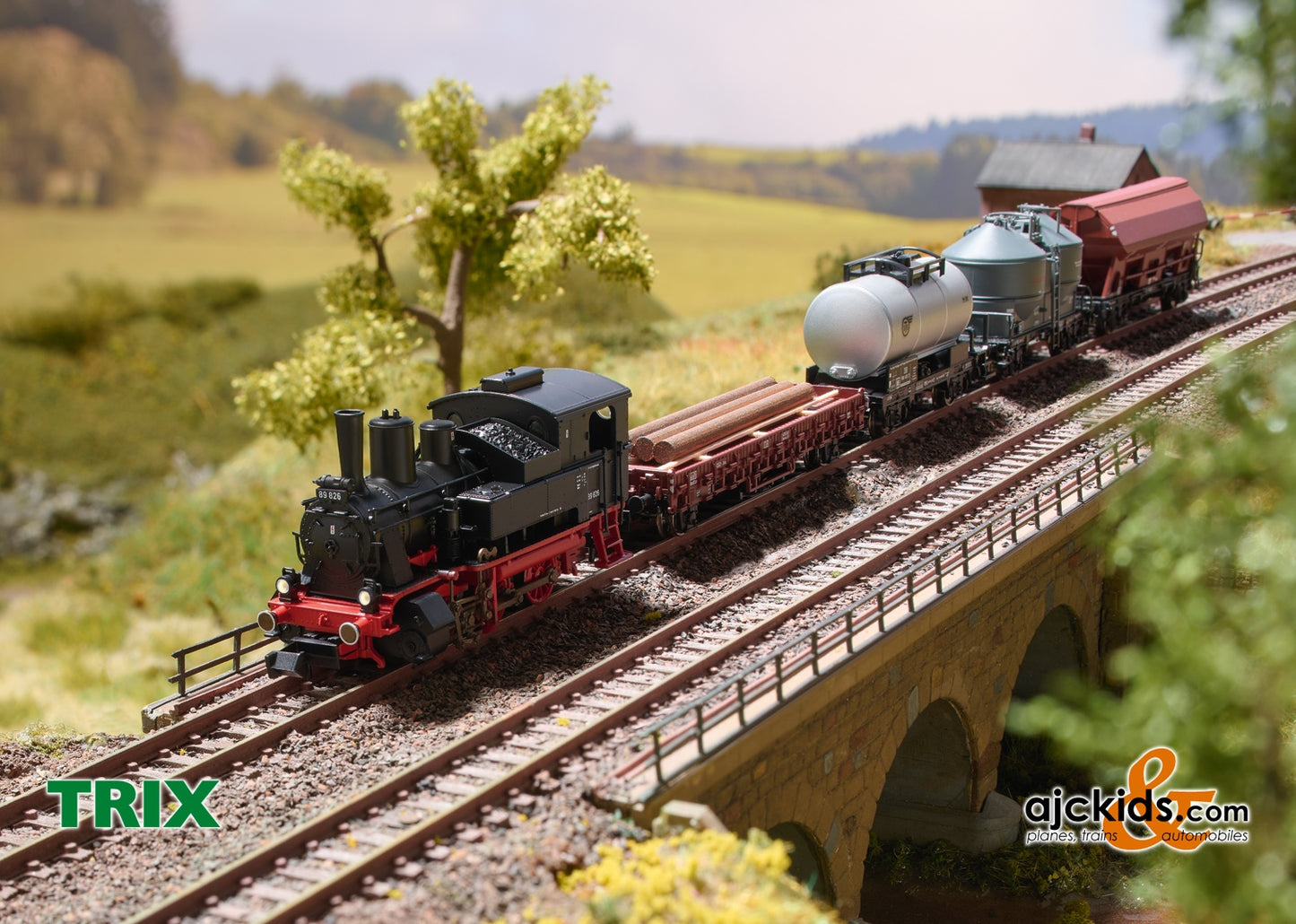Trix 16898 - Class 89.8 Steam Locomotive
Prototype: German Federal Railroad tank locomotive, road number 89 826 (former K.Bay.Sts.B. class R 3/3). 0-6-0T wheel arrangement, built starting in 1898. The locomotive looks as it did starting in 1959 (Nürnberg District / Ansbach home base).
Product description
Model: The Trix 16898 - Class 89.8 Steam Locomotive has a built-in digital decoder for operation with mfx and DCC. 3 axles powered, warm white LED headlights that change over with the direction of travel, can be controlled digitally, and will work in analog operation. The locomotive body and frame are constructed of die-cast zinc.
Length over the buffers 60 mm / 2-3/8".
One-time series.
Publications
- Sommer-Neuheiten Minitrix 2023Features
Warning
| DCC | SX2 | SX | MFX | |
|---|---|---|---|---|
| Headlight(s) | X | X | ||
| Switcher Double "A" Light | X | X | ||
| Rear Headlights off | X | X | ||
| Front Headlights off | X | X | ||
| Direct control | X | X |
King Steam and the German Economic Miracle
After the founding of the German Federal Republic, the new German Federal Railroad experienced an impressive period of prosperity during the Economic Miracle in the Fifties and Sixties. Even though the development of modern diesel and electric locomotives was already beginning at that time, steam locomotives were still indispensable for many years. At the end of 1958 there were still around 9,000 steam locomotives performing over 60% of all motive power mileage. Passenger service was not the only thing to flourish. Freight transport by rail experienced an unforeseen boom. Almost every city had a freight office and there were sidings everywhere for freight customers. Small, often remote railroad stations could be reached as freight rate points. Route abandonment was hardly a topic of discussion.The maintenance-intensive steam locomotives at that time were maintained mostly in three shifts at numerous existing railroad maintenance facilities. It was this way at Ansbach in Bavaria, where 370 workers still cared for 19 steam locomotives and 19 combustion powered units in 1961. Even veterans from the Bavarian provincial railroad era such as the class 89.8 (Bavarian class R 3/3) performed switching work at the station and ran on branch lines to Bechhofen and Windsbach. The powerful but slow class R 3/3 seldom went out on the road, usually serving connections in the city. Now and then they had to replace the swift class Pt 2/3 and the service often began as early as 3:27 AM with the local freight train 8967 to Bechhofen with a running time of two hours for around 32 kilometers / 20 miles. At that time such a load consisted mostly of colorfully assembled freight cars of different types. The trip back went with a passenger train of old two-axle cars and the rest of the day the elderly Bavarian was occupied with switching work and transfer runs. Such locomotives and trains were still part of everyday steam life all over West Germany until the start of the Sixties and formed a small but fine detail in the legendary Economic Miracle Period. This new MINITRIX set is thus a decorative piece on any Era III layout.
EAN/UPC: 4028106168987





